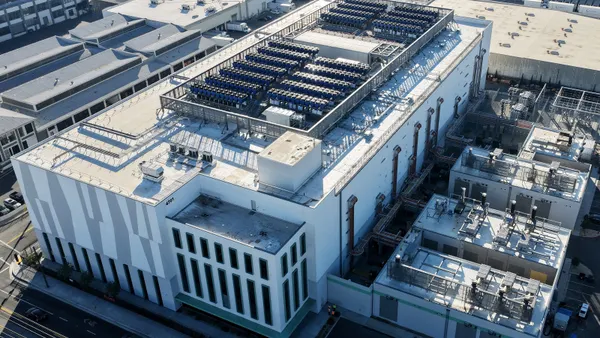Dive Brief:
- Almost $70 million spent to upgrade several public buildings in Delaware went to "inadequate" retrofits that will likely wind up costing the state money, according to State Auditor Tom Wagner.
- The Delaware Sustainable Energy Utility (SEU), a state-created, semi-public agency aimed at reducing consumption, landed a contract five years ago to upgrade the Legislative Mall complex, selling state-guaranteed bonds to pay for improvements, the News Journal reports.
- The SEU's leadership and a lawmaker on the agency's oversight board, as well as the Delaware Office of Management and Budget, have questioned the study's conclusions; the utility says the retrofits used industry standard measurements and practices.
Dive Insight:
A report on efficiency upgrades in Delaware has turned controversial, with the auditor believing the state is getting a bad deal but those involved saying the complicated arrangement merits more study.
State Auditor Wagner launched the investigation following heating and cooling problems at the Legislative Mall Complex, concerns about the project's cost-benefit to the state, and the potential that state employees could be profitting from the deal. While no evidence was found as to the last claim, Wagner's Jan. 12 report concluded that three years into the project "the possibility of the state breaking even on this agreement is looking bleak."
Wagner was critical of the bond arrangement reached with SEU, saying "our work found the bond repayments are exclusively supported by the irreversible obligation of state appropriations." There is also no way to ensure the retrofits deliver the efficiency savings promised, Wagner also said.
"These contractors are recommending the state put in a certain light bulb, for instance, and then projecting the cost savings over 20 years. Well, if you later get a newer, more efficient bulb, you're still paying that projected cost for the original bulb," Wagner told The News Journal.
But several familiar with the project are defending SEU, the deal and the methologies.
"These are fairly complex energy efficiency projects," SEU Executive Director Tony DePrima told the News Journal. "I don't think they understand the protocols or standards being used, especially since they didn't consult with any experts in the field of energy engineering."
The news outlet also reports the Delaware Office of Management and Budget is looking into the study's findings, and Sen. Harris McDowell, a member of SEU's oversight board, said the findings were "mystifying."













